Thrilling Detailed Account of Battle of Badr
Step back in time to the crucial Battle of Badr, a momentous clash that altered the course of history for Islam and the Arabian Peninsula. Immerse yourself in the heart of the action as we explore the gripping narrative of courage, strategy, and sacrifice. Join us as we delve into the complex details of this legendary encounter, where faith and fate collided on the sands of Badr, shaping the destiny of nations.
Immediate Cause
The Prophet Muhammad ﷺ set out in the months of Jumada al-Awwal and Jumada al-Akhirah in the year 2 A.H. with a hundred and fifty or two hundred of the Emigrants to intercept a Quraysh caravan traveling from Mecca to Syria. Upon reaching a place called "Tha al-Ashirah," they found that the caravan had passed by a few days earlier. As the caravan's return to Mecca from Syria drew near, the Prophet Muhammad ﷺ sent Talhah ibn Ubaydullah and Sa'id ibn Zaid northward to gather information about it. They reached a location called Al-Hawra', where they stayed until Abu Sufyan ibn Harb passed by with the caravan. They hurried back to Medina and informed the Prophet Muhammad ﷺ of the news. This caravan was a large trade convoy from Syria carrying significant wealth for the Quraysh, led by Abu Sufyan, guarded by thirty to forty men.
The Prophet Muhammad ﷺ then sent Basbas ibn Amr to gather intelligence about the caravan. When Basbas returned with confirmed news, the Prophet Muhammad ﷺ called upon his companions to march forth, saying, "This is a Quraysh caravan containing their wealth, so go out to intercept it; perhaps Allah will grant you its spoils." However, the Prophet Muhammad ﷺ did not compel anyone to join, as he did not anticipate engaging in battle against the Quraysh at this point. Hence, many of the Companions remained in Medina, and no one was reproached for staying behind in this expedition. It is certain that when the Prophet Muhammad ﷺ set out from Medina, his intention was not for warfare but to intercept the Quraysh caravan, which carried wealth, including a portion belonging to the Muslim Emigrants from Mecca, unlawfully seized by the Quraysh through oppression and aggression.
Departure of the Muslims from Medina:
The Prophet Muhammad ﷺ and the Muslims departed from Medina on 12 Ramadan 2 AH. When the Muslims set out for Badr, the Prophet entrusted Abdullah ibn Umm Maktum with leading the prayers for the people in Medina. Then, he sent Abu Lubabah al-Ansari back from a place called Ar-Rawha' to Medina and appointed him as its temporary governor. The Prophet also dispatched two of his companions to Badr, Adi ibn Abi Zaghba al-Juhani and Basbas ibn Amr al-Juhani, as scouts to gather information about the caravan, and they returned with news.
The number of companions who accompanied the Prophet Muhammad ﷺ in this expedition to Badr was around 300 and some say 319 men. Some sources state that there were 340 companions, while others mention 313, 314 or 317. Among them, 61 were from the Aws tribe, 170 were from the Khazraj tribe, and the rest were Immigrants. The Muslim forces at the Battle of Badr did not represent the full military capability of the Islamic state because they had only set out to intercept a caravan and had no knowledge that they would face the combined forces of the Quraysh and their allies for battle. They only had a few horses, one belonging to Zubair ibn al-Awwam and one to Miqdad ibn Aswad al-Kindi, along with seventy camels. Due to the scarcity of camels compared to the number of Muslims, they took turns riding them. Ibn Mas'ud said: "During the Battle of Badr, every three men shared one camel. Abu Lubabah and Ali ibn Abi Talib were companions of the Prophet Muhammad ﷺ, and they were the rear guard of the Prophet. They said, 'We will walk behind you.' He replied, 'Neither of you is stronger than me, nor am I in no-need of reward from Allah more than you.'"
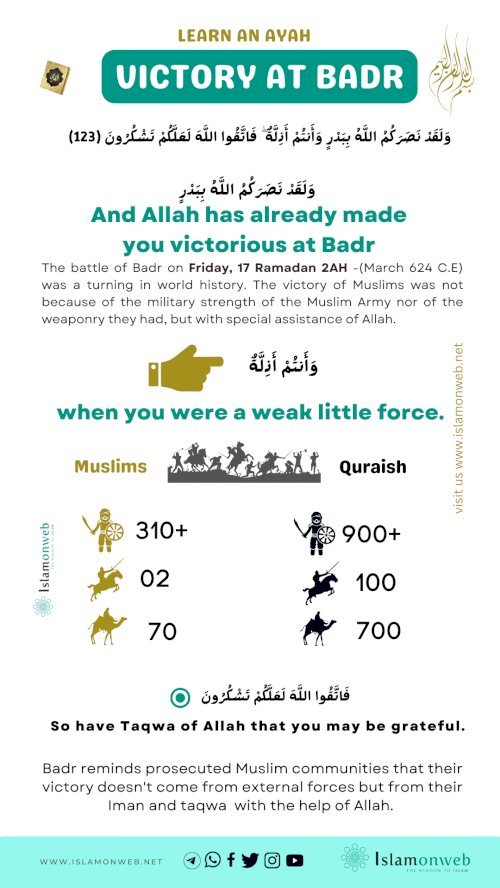
The Prophet kept the destination of their journey to Badr secret, saying, "We have a task to pursue, so whoever is present should join us." After the Muslims left Medina on their way to intercept Abu Sufyan's caravan, they arrived at a place called Biyut al-Suqya outside Medina, where they camped. The Prophet Muhammad ﷺ reviewed those who had accompanied him and dismissed those who were unable to continue or fight including Bara'ah ibn Azib and Abdullah ibn Umar due to their young age. They had joined the Muslim army eager and determined to participate in jihad.
The Prophet Muhammad ﷺ entrusted the overall command to Mus'ab ibn Umair al-Qurashi. His banner was white, and he divided his army into two battalions: the Muhajireen battalion, led by Ali ibn Abi Talib, and the Ansar battalion, led by Sa'd ibn Mu'adh. He appointed Zubair ibn al-Awwam to lead the right flank and Miqdad ibn Amr to lead the left flank— they were the only two horsemen in the army. Qais ibn Abi Sa'sa'ah was assigned to guard the rear. The overall command remained in the hands of the Prophet ﷺ himself.
During the march, one of the polytheists approached, eager to fight with his people. The Prophet refused him, saying, "Go back, for I will not seek assistance from a polytheist." The man persisted, and the Prophet rejected him until he embraced Islam and joined the Muslims.
The departure of the Quraysh from Mecca:
When Abu Sufyan received news of the march of Prophet Muhammad ﷺ and his companions from Medina, intending to intercept their caravan, he decided to redirect its route towards the coastal road. He also sent Damdam ibn Amr al-Ghifari al-Kinani to Mecca to rally the Quraysh to save their wealth and inform them that Prophet Muhammad ﷺ had set out against it. Abu Sufyan was keen on monitoring the movements of the Muslims, personally gathering information about them. In fact, he advanced to Badr himself, asking those present, "Have you seen anyone?" They replied, "Only two men." He asked, "Show me the tracks of their mounts," and when shown, he recognized the dung, saying, "By Allah, these are the dung of Yathrib mounts." Consequently, Damdam ibn Amr al-Ghifari al-Kinani was sent to Mecca to alert the Quraysh and Abu Sufyan changed the route of the caravan, heading towards the coast of the Red Sea.
Damdam ibn Amr al-Ghifari arrived in Mecca, altering the direction of his camel's saddle and tearing his shirt from the front and back. He entered Mecca, loudly proclaiming, "O people of Quraysh! Your wealth is with Abu Sufyan, and Muhammad has offered it to his companions. You may not get it! help, help!" His urgency spurred the people, who responded, "Does Muhammad and his companions think our wealth is like the wealth of Ibn al-Hadrami's caravan? No, by Allah, he will learn otherwise!" They were torn between staying or sending a representative. Eventually, they were stirred into action, with none of their dignitaries staying behind except Abu Lahab ibn Abdul Muttalib al-Hashimi al-Qurayshi, who was substituted by someone who owed him a debt.
When they finished their preparations and agreed on the march, the Quraysh recalled the enmity between them and the Bani Bakr ibn Abd Manat tribe, fearing an attack from their rear. They hesitated to march but were encouraged by Iblis, in disguise of Suraaqah ibn Malik al-Mudlaji al-Kinani, an aristocrat from Kinanah, who assured them of victory over their enemies and promised them a splendid return with feasting, drinking, and entertainment. He declared, "By Allah, there is no escape for you today from the people, and I guarantee you that the Kinanah will bring something you dislike. Let's march on!" This incident is mentioned in the Quran in Surah Al-Anfal “And ˹remember˺ when Satan made their ˹evil˺ deeds appealing to them, and said, “No one can overcome you today. I am surely by your side.” But when the two forces faced off, he cowered and said, “I have absolutely nothing to do with you. I certainly see what you do not see. I truly fear Allah, for Allah is severe in punishment.” (Quran 8:48)
The Quraysh army initially consisted of about 1,300 fighters, with 100 horses, 600 shields, and around 700 camels. Its overall commander was Abu Jahl, also known as Amr ibn Hisham al-Makhzumi al-Qurayshi. The nine leaders responsible for its supplies were Qurayshi nobles, each sacrificing nine camels a day for the army. Some accounts mention that the Quraysh army numbered a thousand fighters. They had two hundred horses alongside their camels, and the drummers accompanied them, beating their drums in anticipation of the Muslims' defeat.
When Abu Sufyan was certain of the caravan's safety, he sent a message to the leaders of the Quraysh, informing them of his and the caravan's escape, urging them to return to Mecca. However, Abu Jahl opposed, saying, "By Allah, we will not return until we reach Badr. There, we will establish ourselves thrice; we will slaughter camels, feast, drink wine, enjoy music, and let the Arabs hear of our march and gathering, so they will forever fear us." However, the Banu Zahrah tribe disobeyed him and returned to Mecca, preceding them. The majority of the Quraysh and their allies, however, advanced until they reached Badr.
Arrival of the news of Quraysh's departure to the Muslims:
When the news reached the Prophet Muhammad ﷺ about the safe passage of the Quraysh caravan and the determination of the leaders of Mecca to confront the Muslims, he consulted his companions about the matter. At that moment, the hearts of some people wavered, fearing the bloody confrontation. Verses from Surah Al-Anfal describing their situation were revealed:
"Similarly, when your Lord brought you ˹O Prophet˺ out of your home for a just cause, a group of believers was totally against it. They disputed with you about the truth after it had been made clear, as if they were being driven to death with their eyes wide open. ˹Remember, O believers,˺ when Allah promised ˹to give˺ you the upper hand over either target, you wished to capture the unarmed party.1 But it was Allah’s Will to establish the truth by His Words and uproot the disbelievers; to firmly establish the truth and wipe out falsehood—even to the dismay of the wicked. " (Quran, 8:5-8).
The leaders of the Emigrants unanimously supported the idea of advancing to confront the enemy, including Abu Bakr, Umar ibn al-Khattab, and Miqdad ibn Aswad.
Miqdad ibn Aswad, one of the Emigrant companions, said to the Prophet Muhammad ﷺ:
"O Messenger of Allah, we do not say to you as the Children of Israel said to Moses: 'Indeed, we will not enter it, ever, as long as they are within it' (Quran, 5:24). But go forth, and we are with you."
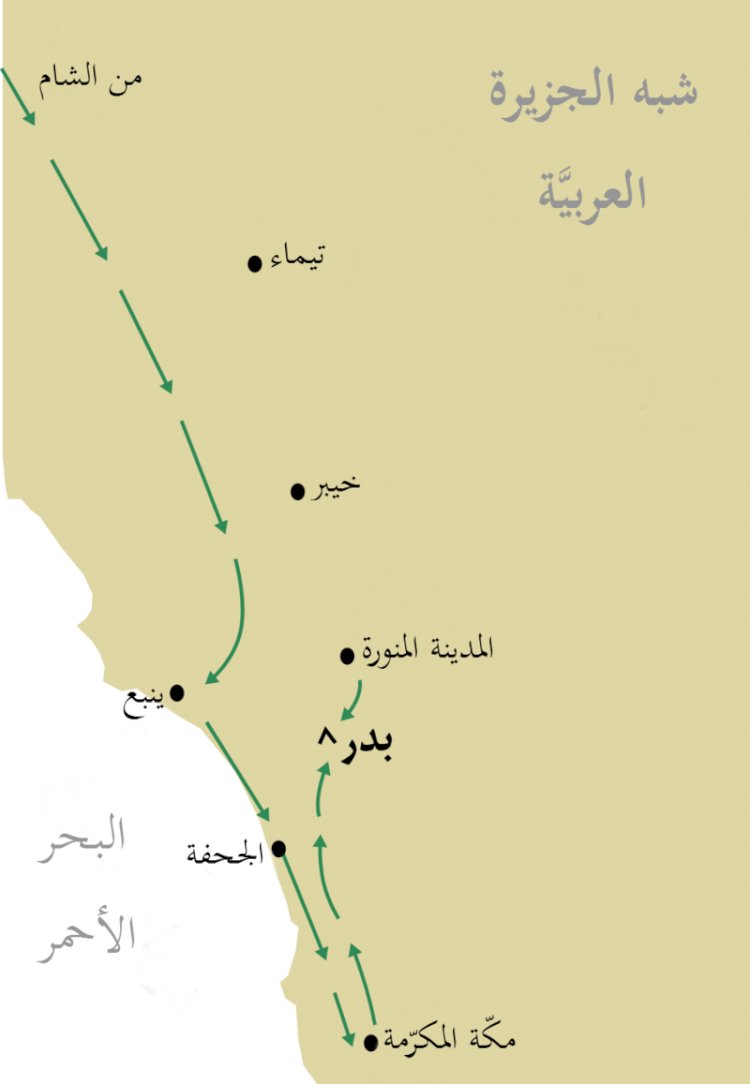
However, these three leaders who spoke up were from the Emigrants, who constituted a minority in the army. The Prophet Muhammad ﷺ preferred to know the opinion of the leaders of the Ansar, as they represented the majority of the army. Additionally, the second pledge of Al-Aqabah did not explicitly bind them to protect the Prophet Muhammad ﷺ outside Medina. So, he said, "Consult me, O people." The Ansari companion Sa'd ibn Mu'adh understood the purpose of this and stood up, saying, "O Messenger of Allah, it seems as if you want us." The Prophet Muhammad ﷺ replied, "Yes." Sa'd said:
"We have believed in you and declared your truthfulness, and we have given you our covenant to listen and obey. Proceed, O Messenger of Allah, to what you intend, for, by the One who has sent you with the truth, if you were to march with us into the sea, we would march with you. Not a man from us will stay behind, and we are not averse to meeting our enemy tomorrow. Indeed, we are patient in war, truthful when meeting the enemy, and perhaps Allah will show you something by our actions that will please you. So, march forth with the blessings of Allah."
Sa'd ibn Ubada also stood up and said, "You are seeking us, O Messenger of Allah, and by the One in whose hand is my soul, if you ordered us to plunge into the sea, we would plunge into it, and if you ordered us to strike the backs of our enemies until they are defeated, we would do so."
The Prophet Muhammad ﷺ responded, "March forth, and have good tidings, for Allah has promised me one of the two groups, and it is as if I can see the locations where they will be die."
Muslims March to Badr
The Prophet Muhammad ﷺ and his companions set out from "Dhafiran" and traveled through an area known as "Al-Asafir." Then they camped near a place called "Al-Diba" They then descended close to Badr. The Prophet Muhammad ﷺ and Abu Bakr al-Siddiq rode ahead until they encountered an old man from the Arabs named Safwan al-Dumari al-Kinan, whom they asked about Quraysh and about Muhammad ﷺ and his companions, and what he had heard about them.
The Prophet Muhammad ﷺ organized his army after seeing the obedience and bravery of his companions and their unanimous decision to fight. He assigned the white flag to Mus'ab ibn 'Umair and handed two black flags to Sa'd ibn Mu'adh and Ali ibn Abi Talib. He also appointed Qais ibn Abi Sa'sa' as the standard-bearer. [39] Then he sent Ali ibn Abi Talib, Zubayr ibn al-Awwam, and Sa'd ibn Abi Waqqas with a group of his companions to the water of Badr to gather information about Quraysh's army. They found two Qurayshi water carriers and brought them to the Prophet Muhammad ﷺ while he was praying, and they questioned them.
The two boys said, "We are water carriers for Quraysh; they sent us to water them." The people doubted their story and hoped they were sent by Abu Sufyan. They beat them until they confessed, "We belong to Abu Sufyan." The Prophet Muhammad ﷺ then stood up from prayer, performed two prostrations, and then said, "When they told the truth, you beat them, and when they lied, you let them go! By Allah, they belong to Quraysh." He then asked them, "Tell me about Quraysh's army." They replied, "They are behind this sand dune you see at the farthest extremity." He asked them, "How many are they?" They said, "Many." He asked, "Can you count them?" They said, "We don't know." He asked, "How many camels do they slaughter each day?" They said, "Nine one day and ten the next." The Prophet Muhammad ﷺ said, "They number between nine hundred and a thousand."
Then he asked them, "Who among them are from Quraysh's nobility?" They mentioned 'Utba ibn Rabi'ah, Shaybah ibn Rabi'ah, Abu Jahl ibn Hisham, Umayyah ibn Khalaf, Abu al-Bakhtari ibn Hisham, Hakim ibn Hizam, Nawfal ibn Khuwaylid, Al-Harith ibn 'Amr ibn Nawfal, Taimah ibn 'Adi ibn Nawfal, Al-Nadr ibn Al-Harith ibn Kaldah, Zama'ah ibn Al-Aswad, Nabih ibn Al-Hajjaj, and Munabbih ibn Al-Hajjaj, and Suhayl ibn 'Amr, and Amr ibn 'Abd Wadd. The Prophet Muhammad ﷺ then turned to his companions, saying, "Here is Mecca, offering you the dearest of them." After gathering the necessary information about Quraysh's army, the Prophet Muhammad ﷺ hastened with his companions towards the site of Badr with the aim of reaching it before Quraysh and preventing them from reaching their water source, thus blocking them from seizing it.
Allah says: “˹Remember˺ when you were on the near side of the valley, your enemy on the far side, and the caravan was below you. Even if the two armies had made an appointment ˹to meet˺, both would have certainly missed it. Still it transpired so Allah may establish what He had destined—that those who were to perish and those who were to survive might do so after the truth had been made clear to both. Surely Allah is All-Hearing, All-Knowing.” (Al-Anfal 42)
The arrival of the Muslims at Badr and the planning for the battle
Upon reaching the closest water source to Badr, Habab ibn al-Mundhir said to the Prophet ﷺ: "O Messenger of Allah, do you see this place? Is it a place that Allah has chosen for us to advance or retreat from? Or is it a strategic decision for war and ambush?" The Prophet replied, "It is indeed a strategic decision for war and ambush." Habab continued, "O Messenger of Allah, this is not a place to stay. Please rise with the people until we reach the nearest water source to the enemy, where we can camp and block access to the wells behind us. Then we can build a reservoir, fill it with water, and fight the enemy. We will have water to drink while they will not." The Prophet accepted his advice and led the army to the closest water source to the enemy, where they camped. They then constructed barriers and secured the wells nearby.
After the Prophet ﷺ and the Muslims descended to the closest water source to Badr from Quraysh, Sa'd ibn Mu'adh suggested to the Prophet ﷺ to build a shelter for him to serve as his headquarters and provide security from the enemy. Sa'd said, "O Prophet of Allah ﷺ, shall we not build a shelter for you where you can stay, and then we can face our enemy? If Allah grants us victory and exposes our enemies, it will be what we desire. And if the situation becomes critical, you can mount your horse and leave, and join those who are left behind in Madina. O Prophet of Allah, they love you as ourselves. If they think you are facing a battle, they will never abandon you. Allah will protect you with them, they will be sincere to you and fight alongside you." The Prophet ﷺ praised Sa'd for his good suggestion and prayed for his well-being.
Then the Muslims built a shelter for the Prophet on a hill overlooking the battlefield. Abu Bakr al-Siddiq was with him there, along with a group of young Ansar led by Sa'd ibn Mu'adh, guarding the Prophet's shelter. The Muslims spent that night, which was the night before the battle, and they believed that Allah had sent them slumber and tranquility on that night, As well, it rained on that night as a mercy from Allah. These are mentioned in Surah Al-Anfal: " ˹Remember˺ when He caused drowsiness to overcome you, giving you serenity. And He sent down rain from the sky to purify you, free you from Satan’s whispers, strengthen your hearts, and make ˹your˺ steps firm." (Quran 8:11) Al-Qurtubi commented, "This drowsiness occurred on the night before the battle. The sleep was remarkable considering the critical situation they were facing, as if Allah calmed their excitement.".
The Prophet ﷺ then began planning for the battle. He arranged the Muslims' ranks, facing the west while positioning the sun behind them so that it would shine into the eyes of their enemies, causing discomfort. He adjusted the rows to ensure they were straight and aligned, using an arrow without feathers to straighten them. He noticed a man named Sawad ibn Ghaziyyah Al-Ansari who had stepped out of the row, so he struck him in the stomach and told him to stand straight. Sawad said, "You hurt me, O Messenger of Allah. Let me avenge you." The Prophet uncovered his stomach and said, "you can avenge." Sawad embraced him and kissed his stomach. The Prophet asked him, "What prompted you to do this, Sawad?" Sawad replied, "O Messenger of Allah, considering the circumstances, I wanted the last touch between you and me to be my skin touching yours." The Prophet prayed for Sawad's well-being.
The Prophet ﷺ then issued orders and instructions to his soldiers, commanding them to shoot arrows when the enemy came close, not when they were far away. He said, "If the enemy comes close to you, throw your arrows." He also instructed them not to unsheathe their swords until the enemy was within reach, saying, "Do not unsheathe your swords until they get close to you." He advised the companions to be economical in their shooting, saying, "Aim well and shoot accurately."
The Prophet's ﷺ encouragement had a significant impact on the morale of his companions. He urged them to fight and incited them to battle. He would tell his companions, "Rise to a paradise as vast as the heavens and the earth." Upon hearing this, Amir ibn al-Hammam al-Ansari exclaimed, "O Messenger of Allah, a paradise as vast as the heavens and the earth?" The Prophet ﷺ confirmed, "Yes." Amir responded, "Excellent! Excellent!" The Prophet asked, "What prompted you to say, 'Excellent! Excellent!'?" Amir replied, "By Allah, O Messenger of Allah, I hope to be among its inhabitants." The Prophet assured him, "Then you are among its inhabitants." Amir then took out dates from his pouch and began eating them, saying, "If I live until I finish eating these dates, it will be a long life." He threw away what remained of the dates and fought until he was killed.
The Prophet ﷺ also encouraged his companions by promising them victory before the battle began, saying, "Take glad tidings, Abu Bakr." He stood among the companions and said, "By Him in whose hand is the soul of Muhammad ﷺ, no man will fight them today with steadfastness, expecting reward, advancing, not retreating, except that Allah will admit him to Paradise." The Prophet prayed for victory for the Muslims, saying, "O Allah, Quraysh has come forward with their horses and pride, denying Your Messenger. O Allah, fulfill Your promise of victory to me."
Arrival of Quraysh at Badr
Before Quraysh arrived at Badr, Amr ibn Wahb al-Jumahi was sent to assess the strength of the Muslim army. He circled their camp on his horse, then returned to them and said, "There are three hundred men, give or take a few. But give me time to see if they have set an ambush or reinforcements." He rode into the valley until he was far away but found nothing. Upon returning, he said, "I found nothing, but O people of Quraysh, I saw calamities carrying deaths, They are carrying imminent death. They are a people with no sanctuary or refuge except their swords. By Allah, I don't see a man among them getting killed without a man of yours getting killed. If they hit you, they will match your numbers. Then what choice of life will you have afterward? So reconsider your plan." However, Abu Jahl refused to return to Mecca without fighting and insisted on proceeding to fight the Muslims.
When the Meccan army arrived at Badr, disputes arose among them, and their internal ranks became unsettled. Ibn Abbas reported that when the Muslims camped and the polytheists approached, the Prophet ﷺ looked at Utbah ibn Rabi'ah riding a red camel and said, "If anyone among those people has any good, it is with the owner of the red camel. If they obey him, they will be guided." Utbah said to his people, "O people, obey me regarding these people. If you do, it will always remain in your hearts. Each man sees his brother's killer and his father's killer. So let me settle this with my head, and let's turn back." Abu Jahl arrogantly said, "By Allah, magic has inflated him when he saw Muhammad ﷺ and his companions. Indeed, Muhammad ﷺ and his companions are like prey, if only we had met them before." Utbah replied, "You will know who is the coward who brings corruption to his people. By Allah, I see a people striking you with strikes. Do you not see as if their heads are snakes and their faces are swords?"
Abu Jahl then supplicated at the beginning of that day, seeking judgement from Allah: "O Allah, he (means Prophet) severed ties our kinship and brought us what we don't know. O Allah, who among us is more beloved to You and pleased with You, support him today." Then Allah revealed the following verse at that moment in Sura Al-Anfal: "If If you ˹Meccans˺ sought judgment, now it has come to you. And if you cease, it will be for your own good. But if you persist, We will persist. And your forces—no matter how numerous they might be—will not benefit you whatsoever. For Allah is certainly with the believers." (Quran 8:17)
The Beginning of the Battle
The battle began when a man from the Quraysh army, Al-Aswad ibn Abdul-Asad Al-Makhzumi, declared, "By Allah, I swear I will drink from their water reservoir, destroy it, or die trying." Hamza ibn Abdul-Muttalib confronted him, and when they met, Hamza struck him, severing his foot halfway below the reservoir. Al-Aswad fell backward with his leg bleeding towards his comrades. He then tried to crawl towards the reservoir to fulfill his oath, but Hamza struck him again, causing him to collapse inside the reservoir.
In response to this, three men from the Quraysh army came forward for single combat: Utbah ibn Rabi'ah, his brother Shaybah ibn Rabi'ah, and his son Al-Walid ibn Utbah. Three Ansar warriors, Awf and Mu'adh ibn Al-Harith (with their mother Afra), and Abdullah ibn Rawahah, stepped forward to face them. However, the Prophet preferred that some of his own family and relatives face them in combat. It is said that some men from Quraysh refused to fight these Ansar warriors, asking them, "Who are you?" They replied, "We are a group of Ansar." The Quraysh responded, "You are worthy and noble, we have no business with you. We seek the sons of our uncles."
Then their herald called out, "O Muhammad ﷺ, send out our best warriors from among our people." So the Prophet commanded, "Rise, Ubaydah ibn Al-Harith, rise, Hamzah, rise, Ali." Hamza faced Shaybah and killed him, Ali faced Al-Walid and killed him, and Ubaydah faced Utbah, striking each other with painful blows. Hamza and Ali then finished off Utbah and carried Ubaydah back to the Prophet Muhammad ﷺ. However, Ubaydah soon succumbed to his wounds and passed away. The Prophet Muhammad ﷺ remarked, "I bear witness that you are a martyr."
When the Quraysh army saw their three men killed in single combat, they became enraged and launched a general attack on the Muslims. The Muslims stood their ground as ordered by the Prophet Muhammad ﷺ, defending themselves and shooting arrows at the enemy. Their rallying slogan was "Ahad! Ahad!" Then the Prophet commanded them to advance, saying, "Attack!" He promised paradise to anyone killed while enduring patiently and seeking reward. This further boosted the Muslims' morale and determination in the fight. Hearing the Prophet Muhammad ﷺ's words, "The multitude will be defeated, and they will turn their backs [in retreat]," also fueled their vigor in battle.
Special Assistance from Allah
Allah reduced the numbers of the polytheists in the eyes of the Muslims and increased the numbers of the Muslims in the eyes of the polytheists. The Prophet ﷺ had seen in his dream on the night when the two armies met that the polytheists were few. He narrated this to his companions, which brought them good news.
This is mentioned in the Quran: " ˹Remember, O Prophet,˺ when Allah showed them in your dream as few in number. Had He shown them to you as many, you ˹believers˺ would have certainly faltered and disputed in the matter. But Allah spared you ˹from that˺. Surely He knows best what is ˹hidden˺ in the heart." (Quran, 8:43).
"Then when your armies met, Allah made them appear as few in your eyes, and made you appear as few in theirs, so Allah may establish what He had destined. And to Allah ˹all˺ matters will be returned ˹for judgment˺." (Quran, 8:44).
The meaning of these verses is that the Prophet ﷺ saw the polytheists in his dream as few, and he narrated this to his companions, which strengthened their resolve. The wisdom behind reducing the Muslims in the eyes of the polytheists was to make them less afraid of attacking them, as they would not take them seriously or take precautions against them. Then, when they engaged in battle, the sudden increase in Muslim numbers would surprise and frighten them, breaking their resolve when they saw what they did not expect. This would contribute to their defeat and the victory of the Muslims.
During the Battle of Badr, the Prophet innovated a new method of fighting the enemy, which was not known among the Arabs before. He fought using the formation of ranks, which is mentioned in the Quran in Surah As-Saff:
" Surely Allah loves those who fight in His cause in ˹solid˺ ranks as if they were one concrete structure." (Quran, 61:4).
This method involved the fighters forming ranks like the ranks in prayer. The front ranks consisted of those with arrows to defend against cavalry attacks, while those behind them were armed with swords to counterattack. The Prophet ﷺ adopted a defensive strategy and did not initiate an attack against the superior forces of the Quraysh. His tactical instructions to his soldiers contributed to disrupting the enemy's center and weakening their morale, leading to the Muslims' victory despite being outnumbered.
Allah also instilled fear in the hearts of their enemies during the Battle of Badr. Allah sent angels to fight alongside them. This is mentioned in the Quran:
“˹Remember˺ when you cried out to your Lord for help, He answered, “I will reinforce you with a thousand angels—followed by many others.” (Quran, 8:9).
“˹Remember, O Prophet,˺ when your Lord revealed to the angels, “I am with you. So make the believers stand firm. I will cast horror into the hearts of the disbelievers. So strike their necks and strike their fingertips.” (Quran, 8:12).
“Indeed, Allah made you victorious at Badr when you were ˹vastly˺ outnumbered. So be mindful of Allah, perhaps you will be grateful. ˹Remember, O Prophet,˺ when you said to the believers, “Is it not enough that your Lord will send down a reinforcement of three thousand angels for your aid?” ˹Remember, O Prophet,˺ when you said to the believers, “Is it not enough that your Lord will send down a reinforcement of three thousand angels for your aid?” Allah ordained this ˹reinforcement˺ only as good news for you and reassurance for your hearts. And victory comes only from Allah—the Almighty, All-Wise” (Quran 3: 123-26)
On the day of Badr, the Prophet Muhammad ﷺ said, "This is Gabriel taking hold of the reins of his horse and equipped for battle." It is also narrated that Ali ibn Abi Talib said, "A man from the Ansar brought the captive Abbas ibn Abdul Muttalib. Abbas said, 'O Messenger of Allah, I swear by Allah, he did not capture me; rather, I was captured by a man with thick hair and a face as handsome as a shining moon, riding a gray horse, the like of which I have never seen among the people.' The Ansari said, 'O Messenger of Allah, it is I who captured him.' The Prophet ﷺ said, 'Be silent, for Allah has helped you with a noble angel.'"
Abu Jahl Gets Killed
The signs of failure and disorder began to appear among the ranks of the Quraysh, and the battle approached its end. Crowds of the Quraysh began to flee and withdraw, while the Muslims continued to capture and kill until the defeat of the Quraysh was completed. The commander-in-chief of the Quraysh army, Amr ibn Hisham al-Makhzumi, known among Muslims as Abu Jahl, was killed. He was killed by two youths from the Ansar, Mu'adh ibn Afra and Mu'adh ibn Amr ibn al-Jamuh.
The companion Abdur Rahman ibn Awf narrates the story of his killing, saying:
"While I was standing in the ranks on the day of Badr, I looked to my right and left, and I saw two young Ansar boys beside me. Their teeth had just come out, and I wished I were between them. One of them winked at me and said, 'O uncle, do you know Abu Jahl?' I said, 'Yes, what do you need from him, O my son?' He said, 'I heard that he insults the Messenger of Allah (peace be upon him), and I swear by the One in whose hand is my soul, if I see him, he will not leave my grasp until he dies.' I was amazed at this, and the other one winked at me and said the same thing. Before I could respond, I looked and saw Abu Jahl walking among the people. I said, 'Don't you see? This is your companion whom you were asking about.' They both drew their swords and killed him. Then they went to the Messenger of Allah and informed him. He asked, 'Which one of you killed him?' Each of them said, 'I killed him.' He asked, 'Did you wipe your swords?' They replied, 'No.' He looked at their swords and said, 'Both of you killed him.' He then decided to give the spoils to Mu'adh ibn Amr ibn al-Jamuh and Mu'adh ibn Afra."
It is also said that they wounded him until he fell to the ground. Abdullah ibn Mas'ud came to him when the Prophet ﷺ sent him to look for Abu Jahl among the wounded. He found him still alive with a glimmer of life, so he killed him with his sword, severed his head, and presented it to the Prophet ﷺ. Various narrations attribute this to Ibn Mas'ud, who said:
"I found Abu Jahl, may Allah curse him, among the dead in Badr. He was still alive, so I struck his head and brought it to the Messenger of Allah (peace be upon him). I said, 'This is the head of Abu Jahl, by the One other than whom there is no god.' He said, 'Is this the head of Abu Jahl?'. I said, 'Yes,' and placed it before him. He praised Allah.
End of the Battle
The Battle of Badr ended with the victory of the Muslims over the Quraysh. Seventy men from the Quraysh were killed, and seventy others were captured, most of whom were from the leaders and chiefs of the Quraysh. Fourteen men from the Muslims were killed.
Among them were six from the Muhajirun:
- Ubaydah ibn al-Harith al-Mutalibi al-Qurashi.
- Amir ibn Abi Waqqas al-Zuhri al-Qurashi.
- Safwan ibn Wahb al-Fahri al-Qurashi.
- Aqil ibn al-Bukayr al-Laithi al-Kinan.
- Dhul-Shamalayn ibn Abd Amr al-Khazai.
- Mahja' ibn Salih al-Aki.
And eight from the Ansar:
- Sa'd ibn Khaythama al-Awsi.
- Mubashir ibn Abd al-Mundhir al-Umri al-Awsi.
- Yazid ibn al-Harith al-Khazraji.
- Amir ibn al-Hammam al-Salmi al-Khazraji.
- Rafi ibn al-Mu'alla al-Zarqi al-Khazraji.
- Harith ibn Suraqah al-Najari al-Khazraji.
- Mu'adh ibn al-Harith al-Najari al-Khazraji.
- Awf ibn al-Harith al-Najari al-Khazraji
Once the Quraysh was defeated, the Messenger sent Abdullah ibn Rawaha and Zayd ibn Harithah to announce to the Muslims in Medina the victory of the Muslims and the defeat of the Quraysh. The Messenger Muhammad ﷺ stayed in Badr for three days after the battle. It is narrated by Anas that he said, "When the Messenger of Allah (peace be upon him) would defeat an army, he would stay for three nights."
Those Muslims who were killed in the battle were buried on the battlefield. None of them were buried outside of Badr.
The Messenger Muhammad ﷺ stood over the dead from the Quraysh and said, "How evil was the clan of the Prophet, you were for your Prophet! You belied me while the people believed me, you deserted me while the people supported me, and you expelled me while the people sheltered me." Then he ordered for them to be dragged to the well of Badr and thrown into it. Then he stood over them and said, "O Utbah ibn Rabiah, O Shaybah ibn Rabiah, O so-and-so, O so-and-so, have you found what your Lord promised you to be true? For I have found what my Lord promised me to be true."
Hearing this, Umar ibn al-Khattab asked, "O Messenger of Allah! Are you addressing those who are dead?" He said, "By the One in whose hand is the soul of Muhammad ﷺ, you are no more able to hear what I say than they are."
Quraysh War Captives
When the Muslims achieved victory and seventy captives fell into their hands, the Messenger Muhammad ﷺ said, "What do you say about these captives?" Abu Bakr al-Siddiq said, "O Messenger of Allah, they are your people and your relatives. Be lenient with them and show kindness to them, perhaps Allah will forgive them." Umar said, "O Messenger of Allah, they expelled you and belied you. Bring them close and strike their necks." Abdullah ibn Rawaha said, "O Messenger of Allah, see that valley full of firewood. Put them in it and set fire to it." Abbas said, "You have cut off your kinship." So the Messenger Muhammad ﷺ entered and did not respond to them. Some people said, "He is accepting the opinion of Abu Bakr." Others said, "He is accepting the opinion of Umar." And others said, "He is accepting the opinion of Abdullah ibn Rawaha."
Then the Messenger Muhammad ﷺ came out to them and said, "Indeed, Allah softens the hearts of some people until they become softer than milk, and indeed Allah hardens the hearts of some people until they become harder than stone”.
Then, the Prophet explained that Abu Bakr was like Prophets Ibrahim and Isa, who prayed for the forgiveness of their people. Umar is like prophets Noah and Moses, who prayed to destroy their people who disobeyed Allah.
The treatment of prisoners by the Messenger of Allah varied. Some were killed, others were ransomed, and some were granted their freedom in exchange for teaching ten Muslim children. Among the prisoners killed by the Muslims at Badr were Uqbah ibn Abi Mu'ait and al-Nadr ibn al-Harith. They were among the foremost instigators of war against Islam. Al-Nadr ibn al-Harith had been harming the Prophet Muhammad ﷺ and harbouring enmity toward him. When the Muslims captured him, the Prophet Muhammad ﷺ ordered his execution, and he was killed by Ali ibn Abi Talib.
When the Prophet Muhammad ﷺ returned to Medina, he distributed the prisoners among his companions and instructed them, "Treat them well." Abu Aziz ibn Umair's brother, Mus'ab ibn Umair, said, "I was among the captives at Badr, and the Messenger of Allah said, 'Treat the captives well.'" I was with a group of the Ansar, and when they ate their lunch and dinner, they gave me bread while they ate dates, fulfilling the advice of the Messenger of Allah."
Abu al-'As ibn al-Rabi' said, "I was with a group of the Ansar, and may Allah reward them well. Whenever we had dinner or breakfast, they preferred me with bread while they ate dates. The bread was scarce for them, and dates were plentiful. Sometimes, a man would find a piece of bread in his hand and pass it to me." Similarly, al-Walid ibn al-Walid ibn al-Mughirah narrated that the Ansar would carry us on animals while they were walking.
Quraysh sent a ransom for their prisoners, and each group ransomed their captive according to their satisfaction. Some captives from Badr had no ransom, so the Prophet Muhammad ﷺ made their ransom to teach the children of the Ansar to read and write. This is how the captives began teaching the boys of Medina reading and writing, and anyone who taught ten boys would redeem himself.
References
- "Tarikh al-Islam" by Shams al-Din al-Dhahabi
- "Jawami' al-Sirah" by Ali ibn Hazm al-Andalusi, edited by Dr. Ihsan Abbas and Dr. Naser al-Din Assad, Dar Ihya al-Sunnah, Pakistan, 1368 AH, p. 107.
- "Al-Sirah Al-Nabawiyyah" by Abu Muhammad Abdul Malik ibn Hisham,.
- "Al-Sirah Al-Nabawiyyah - by Ali Muhammad Al-Salabi,
- "Al-Bidayah wa Al-Nihayah" by Abu Al-Fida Ismail ibn Umar ibn Kathir al-Dimashqi,
- "Al-Mustadrak 'ala al-Sahihayn" by Muhammad al-Hakim
- "Al-Tabaqat" by Ibn Saad
- "Al-Tabaqat Al-Kubra" by Muhammad ibn Saad ibn Mina' al-Basri al-Zuhri,
- "Fath al-Bari Sharh Sahih al-Bukhari" by Ibn Hajar al-Asqalani,
- "Sharh al-Nawawi 'ala Sahih Muslim" by Imam Nawawi
- "Sahih al-Bukhari," Book of Battles,
- "Sahih Muslim," Book of Governance and Leadership
- "Al-Sirah Al-Nabawiyyah" by Abu Shahba,
- "Al-Sirah Al-Nabawiyyah Al-Sahihah" by Akram Diya al-Umari,
- "Mawsu'ah Nadrat al-Na'im fi Akhlaq al-Rasul al-Karim" by a team of specialists under the supervision of Saleh bin Hamid and Abdul Rahman bin Malouh,
- "Ghazwat Badr Al-Kubra" by Muhammad Ahmad Bashmil, p. 162.
- "Jam' al-Usul fi Ahadith al-Rasul" by Ibn al-Athir
- "Al-Bidayah wa Al-Nihayah" by Ibn Kathir
- "Majma' al-Zawa'id wa Manba' al-Fawa'id" by Ali ibn Abu Bakr ibn Sulaiman al-Haythami,
- "Al-Maghazi" by Al-Waqidi,
- "Al-Tabaqat al-Kubra" -
- "Al-Tarikh al-Siyasi wa al-Askari" by Ali Mu'ati,.
Disclaimer
The views expressed in this article are the author’s own and do not necessarily mirror Islamonweb’s editorial stance.
2 Comments
-

-

Muslim Forces: Total Number: Approximately 300 to 319 men (most commonly cited: 313, 314, or 317) Tribal Composition: Aws tribe: 61 men Khazraj tribe: 170 men Muhajireen (Emigrants): The remaining number (approximately 82-88) Equipment: Horses: 2 (one belonging to Zubair ibn al-Awwam, one to Miqdad ibn Aswad al-Kindi) Camels: 70 (shared among the men) Leadership: Overall Commander: Prophet Muhammad ﷺ Muhajireen battalion leader: Ali ibn Abi Talib Ansar battalion leader: Sa'd ibn Mu'adh Right flank leader: Zubair ibn al-Awwam Left flank leader: Miqdad ibn Amr Rear guard: Qais ibn Abi Sa'sa'ah Quraysh Forces: Total Number: Approximately 900 to 1,300 men (most commonly cited: 1,000) Equipment: Horses: 100 to 200 Shields: 600 Camels: Approximately 700 Leadership: Overall Commander: Abu Jahl (Amr ibn Hisham al-Makhzumi al-Qurayshi) Nine leaders responsible for supplies. Key Numerical Highlights: The Muslim forces were significantly outnumbered, with roughly 313 men compared to the Quraysh's estimated 1,000. The Muslim army had very limited cavalry (2 horses), while the Quraysh had a substantial cavalry force (100-200 horses). The muslim army had 70 camels, and the Quraysh army had approximately 700.

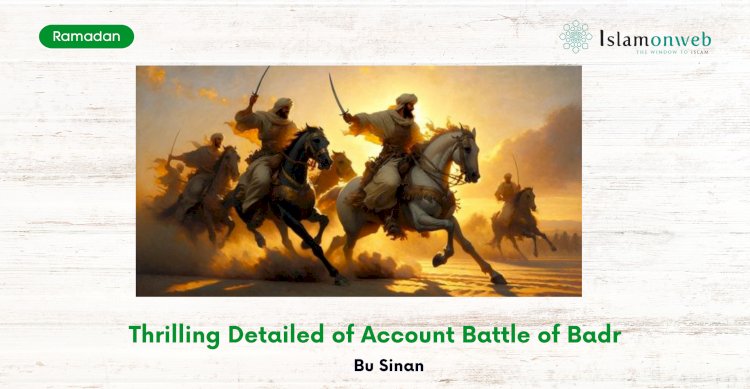


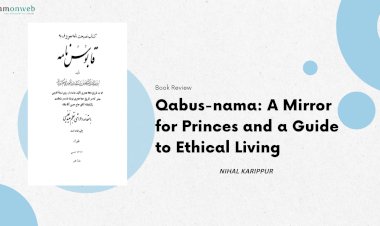
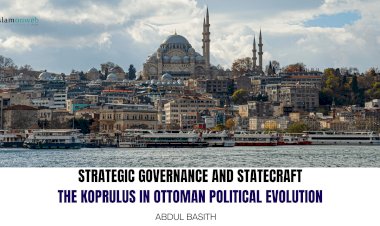
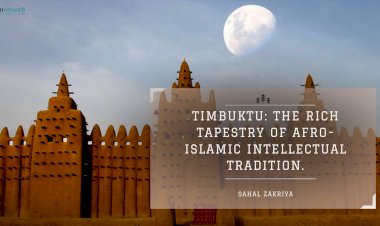
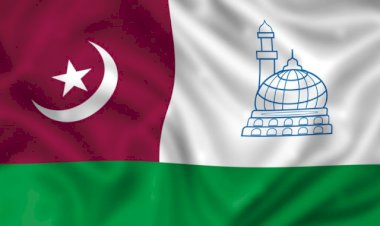
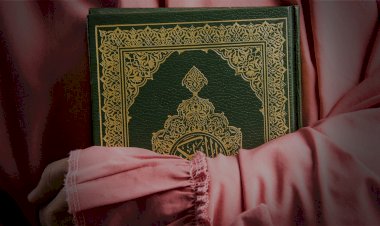
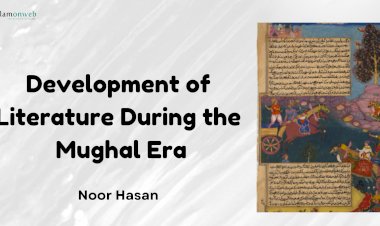














Leave A Comment